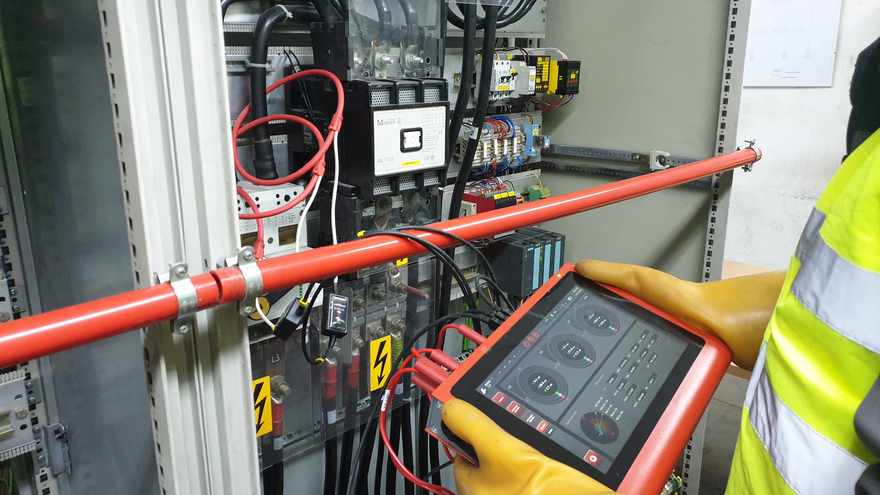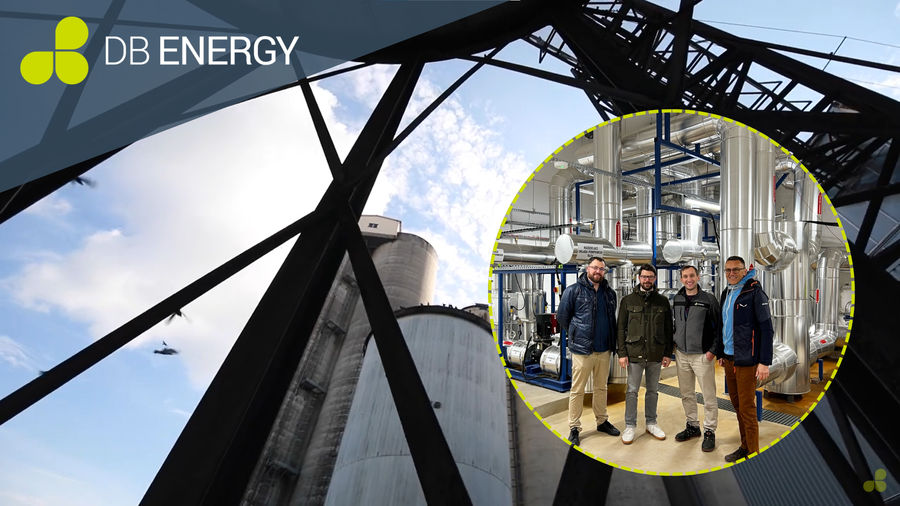Is an energy audit mandatory for a company?
A company's energy audit is a special set of analyses that allows you to identify areas where it is possible to reduce energy consumption in an industrial plant. For some companies, it is a mandatory audit that should be carried out once every four years. This audit includes a series of calculations and the development of the most interesting and cost-effective actions to improve energy efficiency that can be implemented in a given company. This is the basic step and the most important pillar of a zero-emission strategy.

What is an energy audit?
An energy audit of a company is a detailed analysis of many areas of the company's activity, such as energy consumption, technological processes, buildings, transmission networks or the condition of the fleet. The key objective of an energy audit is to recommend the Energy Efficiency Improvement Projects. An energy audit of a company is therefore the first and most important step towards reducing energy consumption and achieving zero emissions. Recommendations can also be based on precise measurements and calculations from both the energy and financial perspective and precisely matched to the needs of a given company.
Which companies must regularly conduct an energy audit?
According to the Energy Efficiency Act (Journal of Laws of 2016, item 831, i.e. Journal of Laws of 2021, item 468), implementing the provisions of the EED Directive 2012/27/EU - hence the common name "EED audit" - all large enterprises are required to conduct an energy audit. What characterizes a large enterprise in the context of EED?
This applies to companies that have employed an average of at least 250 employees on an annual basis in the last two financial years or achieved an annual net turnover from the sale of goods, products, and services, and financial operations exceeding EUR 50 million, and the sum of balance sheet assets at the end of one of these years exceeded EUR 43 million.
For large companies, this is a legally regulated obligation; however, the results of an energy audit of a company are so valuable that it is worth conducting it, even if the obligation does not apply to a given company. In particular, in the case of companies with high energy intensity – for example, from the steel, metallurgical, paper processing, or manufacturing industries – the results of an EED audit can provide valuable conclusions and a very precise plan of technical solutions, the implementation of which will result in high savings.
Where do you conduct an energy audit of a company?
Many companies offering audit services specialize in specific technologies such as photovoltaic panels or heat pumps. When choosing a company to conduct an energy audit, it is worth looking for an auditor who does not offer just one type of solution. This way, there is a lower risk that the audit results will indicate the services offered by the company. You should also pay attention to their experience in both audits and the implementation of the indicated projects. This way, the costs and risks will not be based solely on estimated calculations, and the suggested technologies will be better suited to the specifics of the audited company.
At DB Energy, we deal with both company audits and consulting in a broader sense. We also design, implement, and finance energy-saving investments. We support our clients in the process of obtaining subsidies and White Certificates, and we can also finance projects under ESCO financing in the design-finance-build model. The audit is only a prelude to further action, but if properly conducted, it will be a strong foundation for real energy efficiency and cost-effective decarbonization.
What happens after the energy audit?
It is best to familiarize yourself with the audit conclusions and consider starting to implement energy-saving investments. Combining our competencies related to energy efficiency - design, financing, and implementation of energy-saving investments - with the Client's knowledge of production technology allows us to implement investments that bring the greatest savings and have a real impact on reducing CO₂ emissions. By working at the Client's plant, our engineers gain very detailed knowledge of the plant's condition, which translates into ease in designing implementation concepts and implementing investments.
At one of our clients, the Soufflet Polska Malt House in Poznań, Poland, we conducted an energy audit of the company in 2016. We identified, then implemented, and financed an investment based on it that reduced the malt house's emissions by 9.5 thousand tons of CO₂ per year. The value of the entire project is approximately PLN 29 million. Thanks to the completed investment, we saved over 30 GWh of heat energy and 12 GWh of electricity. We work closely with the malt house, where we monitor completed projects and plan the next ones.

If you want to learn more about this project, click here: Soufflet Malt House
In summary, an energy audit of a company is not only a legal requirement for large companies but also a strategic tool that can bring significant financial and ecological benefits. Choosing the right auditor not tied to specific technologies ensures the objectivity and effectiveness of recommendations, and cooperation with companies offering comprehensive support in implementing energy-saving investments can significantly accelerate the decarbonization process. A properly conducted audit is a solid basis for implementing effective energy solutions that not only reduce operating costs but also support the sustainable development of the company.